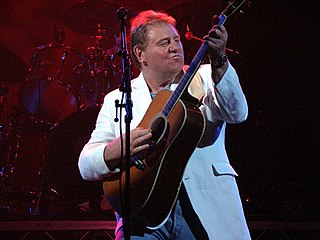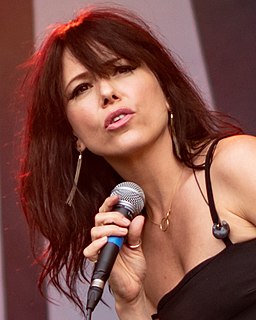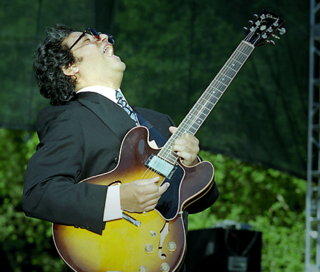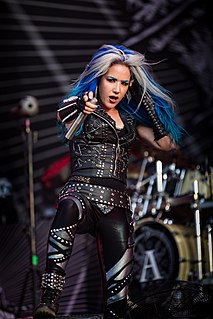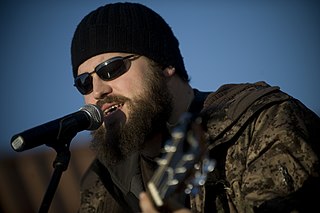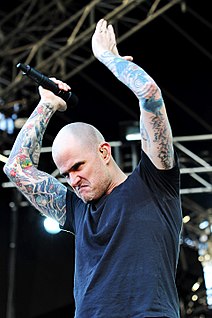A Quote by Greg Lake
The less people that are on the stage, there's more drama. You start living the music with each individual. When you see a band with ten people on stage, just a huge ensemble, you don't know who's doing what.
Related Quotes
Normally classical music is set up so you have professionals on a stage and a bunch of audience - it's us versus them. You spend your entire time as an audience member looking at the back of the conductor so you're already aware of a certain kind of hierarchy when you are there: there are people who can do it, who are on stage, and you aren't on stage so you can't do it. There's also a conductor who is telling the people who are onstage exactly what to do and when to do it and so you know that person is more important than the people on stage.
I think the more people you add on stage, the more locked it things become. Whereas fewer members on stage gets the audience to notice any small idiosyncrasy or unique moment that one of the three people onstage is having. It also means that mistakes are accentuated, but to good affect generally if you are that type of band.
I'm not an angry person, just very disappointed and contemptuous of my fellow humans' choices - and on stage those feelings sometimes are exaggerated for a theatric stage - you're on a stage you have an audience of 2500 or 3000 people: you need to project the feelings, the emotions it's heightened, and people mistake it for a personal anger but it's more dissatisfaction, disappointment and contempt for these things we've settled for.
I can feel how an audience is reacting when I'm on a stage, but when you are on stage, your perception is distorted. That's something you just have to know. It's like pilots that fly at high Gs and they lose, sometimes, consciousness and hand/eye coordination and they just have to know that that's going to happen. They have to be trained to not try to do too much while they are doing that. So when you are on stage, you have to be aware that you are wrong about how it feels a lot of times.
I got on stage and I went, "Oh wow. No stage fright." I couldn't do public speaking, and I couldn't play the piano in front of people, but I could act. I found that being on stage, I felt, "This is home." I felt an immediate right thing, and the exchange between the audience and the actors on stage was so fulfilling. I just went, "That is the conversation I want to have."
I'm living in a world that was created a hundred years ago with vaudeville and people traveling around and medicine shows and things and making live music on stage and I'm still doing that. I like it that way. I like to present something to people that's had 40 years of being honed and perfected. It's something that you're not going to find with an artist who's been around for two or three years, or even ten years.
